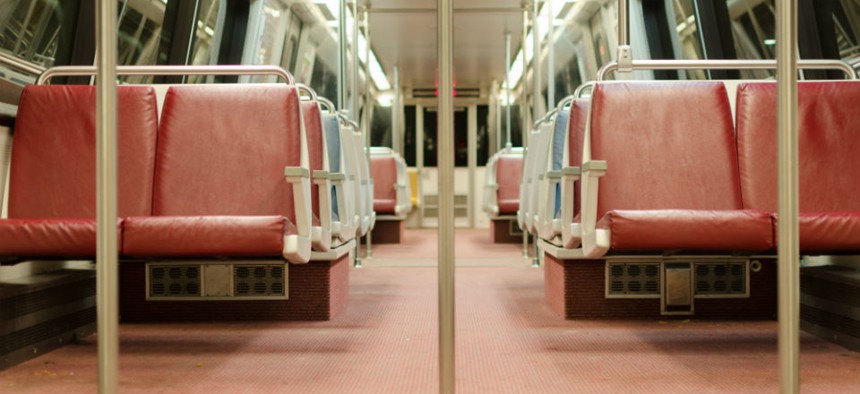
Orhan Cam / Shutterstock.com
Retroactive Mass Transit Benefit Boost Heads to Obama’s Desk
Federal employees riding public transportation will now receive same tax break as drivers.
The Senate late Tuesday approved a measure 76-16 that will retroactively provide federal employees and all American workers with a much larger mass transit benefit for 2014. The provision is part of a broader tax deal that President Obama is expected to sign into law.
The transit benefit fell nearly in half in 2014, but the 11th hour agreement on a broader package of tax provisions will restore the subsidy to $250 per month, just more than the 2013 level. The maximum monthly mass transit benefit dropped to $130 on Jan. 1 when a provision of the fiscal cliff deal expired.
Lawmakers and employee advocates alike have balked at the gap between the parking benefit, which actually increased by $5 in 2014 to $250 a month, and the mass transit subsidy. The transit restoration will reduce federal revenues by $10 million over 2015-2024, according to the Joint Committee on Taxation.
Congressional negotiators attempted to make the transit benefit and dozens of additional tax provisions permanent, but the proposal unraveled after Obama threatened to veto the deal. The Senate Finance Committee in April approved the Expiring Provisions Improvement Reform and Efficiency -- or EXPIRE -- Act, which would have extended the tax cuts for two years, but Senate Republicans blocked the bill when it came to the floor in May.
Sen. Ron Wyden, D-Ore., who chairs the Senate Finance Committee, was unhappy with the one-year, retroactive deal, calling it unfair for working families. He continued to press for a multi-year deal, but with lawmakers anxious to break for the year, there was little political will for last-minute negotiating.
Lawmakers in both the House and Senate were reluctant to support the temporary measure, voicing concerns in the closing weeks of the 113th Congress of the uncertainty it caused American businesses and families. Some legislators also complained the costs of the tax extenders were not offset. The bill still won the votes of a majority of both Republicans and Democrats, however, who called it necessary to avoid raising individuals’ tax bills.
“It’s the best that we can do in the environment we are in,” Rep. Pete Sessions, R-Texas, chairman of the House Rules Committee, said of the bill when it passed the House earlier this month.
The retroactive fix is not without precedent; a similar gap between mass transit and parking benefits also existed in 2012, though the fiscal cliff deal eliminated the disparity after the fact. The original transit benefit boost was created in 2009 in what is colloquially known as the economic stimulus package, which temporarily increased the subsidy from $115 to $230 per month.
The tax extenders package was the last significant bill on the Senate’s schedule. Outgoing Majority Leader Harry Reid, D-Nev., delayed its passage to buy time to confirm a slew of Obama nominees. Both chambers of Congress are now recessed until 2015.
The temporary extension sets up yet another fight over mass transit and other tax benefits in 2015. Lawmakers once again expressed hope for a more permanent solution next year.
(Image via Orhan Cam / Shutterstock.com)







